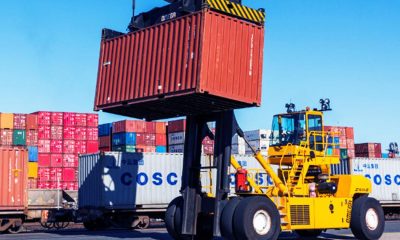Unraveling the web: The impact of money laundering on tax collection in Uganda
Money laundering, the process of concealing the origins of illegally obtained funds to make them appear legitimate, poses a significant threat to economies worldwide.
In Uganda, the Commissioner of Tax Investigation at the Uganda Revenue Authority (URA), Denis Kugonza Kateba, sheds light on the intricate relationship between money laundering and tax evasion, emphasizing the detrimental effects on tax collection and the broader economy.
Understanding money laundering and Its connection to URA
Money laundering involves three key stages: placement, layering, and integration. Criminal activities such as theft, corruption, drug trafficking, illegal wildlife trade, cybercrime, and tax evasion generate substantial proceeds that are laundered into the economy. In Uganda, tax evasion is a criminalized activity, with its proceeds susceptible to money laundering. This dual threat not only impacts government revenue but also undermines legitimate businesses through unfair competition, potentially funding other criminal activities, including terrorism.
Comparative analysis in Africa
While specific data on the impact of money laundering is challenging to obtain, Africa is estimated to lose $50 billion annually, with 65% lost through commercial transactions directly affecting revenue collection. Sub-Saharan African countries, including Uganda, face challenges in mobilizing tax revenues, falling below the UN’s recommended 20% of GDP for achieving Millennium Development Goals. Independent assessments, such as the Basel AML Index, indicate that money laundering risks in Sub-Saharan Africa surpass the global average, with Uganda standing out with a risk rating of 6.83.
Uganda’s unique challenges
Uganda serves as a major transit route for money laundering proceeds from mineral-rich neighboring countries like the Democratic Republic of Congo and South Sudan.
Porous borders and a lack of effective money laundering frameworks contribute to this vulnerability. The Financial Action Task Force (FATF) placed Uganda on the financial grey list in 2020, citing institutional loopholes and a weak legal regime.
However, recent assessments in 2023 suggest significant progress, potentially leading to removal from the grey list in 2024.
URA’s counter measures
Denis Kugonza Kateba highlights URA’s commitment to combatting tax evasion and money laundering through prevention, investigation, and prosecution. Key initiatives include:
- Customs performance enhancement:
- Implementation of Electronic Cargo Tracking, Single Customs Territory, Document Processing Centre, and one-stop border posts to facilitate international trade and counter trade-based money laundering.
- Cross-border declaration:
- Facilitation of cross-border declaration of currency and negotiable bearer instruments at border points through forms D&C, contributing to the fight against illicit financial flows.
- International cooperation:
- Signatory to the convention on Mutual Administrative Assistance since 2016, enabling the exchange of information through the Exchange of Information platform (EOI) for effective audits and investigations.
- Specialized anti-money laundering unit:
- Establishment of a specialized Anti-Money Laundering Investigation unit with competent personnel to investigate and prosecute tax evasion and money laundering cases.
- Collaboration with government agencies:
- Memorandum of Understanding with government agencies, including the Financial Intelligence Authority and National Identification Authority, for the exchange of information. Collaboration with Uganda Police and the Office of the Director of Public Prosecutions for investigation and prosecution.
- Whistleblowing incentives:
- Introduction of incentives for whistleblowing and witness protection regulations to encourage reporting and curb tax evasion.
The Dangers of Money Laundering to Tax Business
- Tax revenue leakage:
- Trade-based money laundering can lead to underestimation or overestimation of the value and volume of international transactions, resulting in revenue leakage.
- Unfair competition:
- Laundered proceeds can be used by criminals to outcompete legitimate businesses, leading to business collapse, revenue loss, and unemployment.
- Financial sanctions:
- Money laundering can attract financial sanctions on the country, including black and greylisting by international organizations, resulting in increased costs for international businesses, reduced investor interest, and diminished tax revenue collection.
- Complex investigations:
- Tax evasion and money laundering involve intricate schemes, necessitating tools, systems, and qualified personnel for investigations and prosecutions, thereby increasing overall tax compliance costs.
- Distorted economic data:
- Trade-based money laundering distorts economic trade data and statistics, making planning, decision-making, and revenue collection challenging for authorities.
URA’s prosecution successes
Denis Kugonza Kateba highlights ongoing cases handled by the Anti-Money Laundering Unit, emphasizing that once ready, the culprits will face penalties under the Anti-Money Laundering Act of 2013.
Message of caution to the public
URA urges the public to refrain from engaging in tax evasion and money laundering activities. The organization emphasizes its intensified efforts, including deterrence and investigation, to combat these illicit practices.
URA has implemented measures to detect and deter trade mis-invoicing, smuggling, phantom shipments, and dumping, urging citizens to report wrongdoings and support revenue collection for national development.
Money laundering’s impact on tax collection in Uganda is a multifaceted challenge, with consequences ranging from revenue leakage to international sanctions.
As Uganda strives to shed its financial grey status, continued collaboration, public awareness, and stringent enforcement are crucial in curbing money laundering and fostering a fair and transparent economic environment.
Courtesy; URA website
























